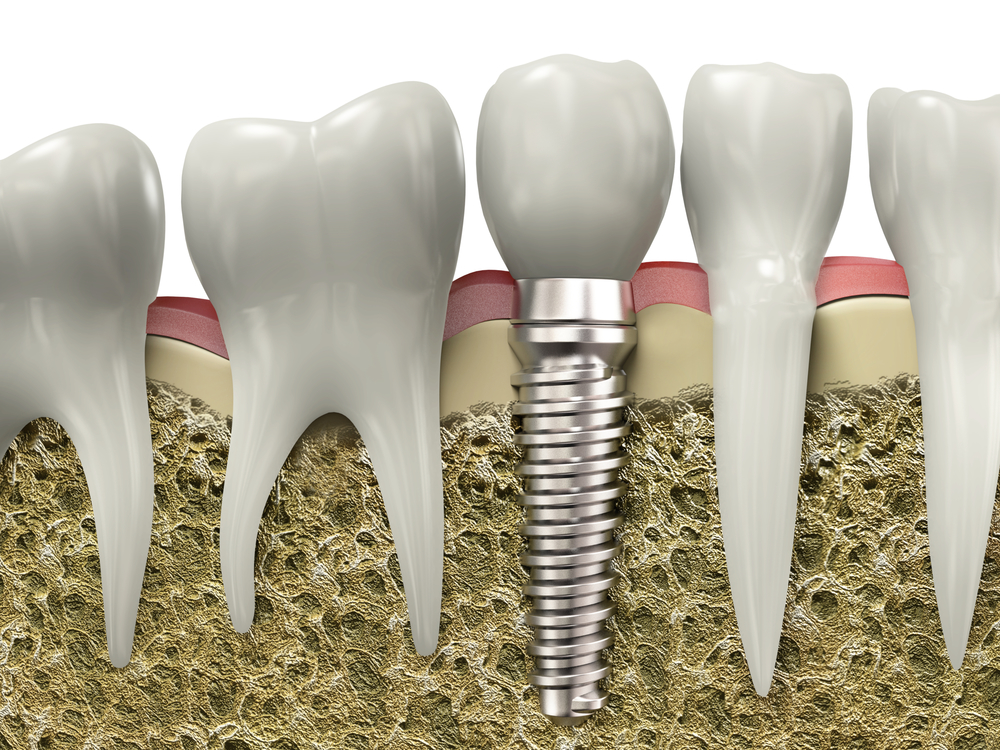
Missing a Tooth? Your Headaches and Jaw Pain May be Connected
Problems Caused By Missing Teeth
 When patients lose teeth to decay, accidents, or gum disease, we always recommend tooth replacement with either implant-based or traditional prosthetics. The loss of even just one tooth can cause a cascade of changes to your dentition that can have far-reaching negative effects on your health and quality of life. At Bowmanville Dental, our dentists provide several options for tooth replacement, and would love to see you get your healthy smile back. Call us today or visit us online to learn more about your options for replacing those missing teeth.
When patients lose teeth to decay, accidents, or gum disease, we always recommend tooth replacement with either implant-based or traditional prosthetics. The loss of even just one tooth can cause a cascade of changes to your dentition that can have far-reaching negative effects on your health and quality of life. At Bowmanville Dental, our dentists provide several options for tooth replacement, and would love to see you get your healthy smile back. Call us today or visit us online to learn more about your options for replacing those missing teeth.
What Happens When You Lose a Tooth
Losing just one tooth can have many negative effects on your life. If you’ve lost a tooth that shows when you smile, your self-confidence will be impacted by the dramatic change to your smile. If you’ve lost a tooth in the back, especially a molar, things can get much worse than not wanting to smile around others.
When a tooth is lost, the teeth adjacent to it will slowly begin to drift into the open space. After a time, they may sit at an angle, which creates space for the next teeth to shift into. Soon, all the teeth in that quadrant of your mouth will be off, and your bite will be completely different. We usually only think of bite problems like overbite and under bite when we think about bite, but when molars don’t align properly this can lead to chipping, cracking, and worn-down enamel. This can make them more prone to decay and reduce their ability to properly chew your food. Soon your healthy remaining teeth may not be so healthy anymore.
Another negative effect of losing a back tooth is that you may begin to favor one side of your mouth when you chew your food. If a molar is missing on your left side, you may start to chew more using the right side of your mouth. No big deal? Wrong; this can be a big deal because it may lead to soreness on one side of the jaw, muscle atrophy on the other side, and overall stress on the temporomandibular joint (TMJ) on each side of your face.
An imbalanced bite can lead to TMJ disorder, which involves chronic pain in the jaw, temples, and neck. It can also lead to bruxism, or night time teeth grinding and jaw clenching. Symptoms of TMJ disorder and bruxism can often be controlled with an oral appliance or night guard, but if a patient is missing a tooth, we will always correct that problem first.
Bone Loss is Inevitable
Another negative effect of tooth loss is bone loss in the jaw. Not everyone realizes this until they lose a tooth, but our bodies rely on our tooth roots to signal the need for healthy bone tissue in the jaw. When tooth roots disappear, the body stops sending vital minerals to the jaw to support health bone maintenance. Patients who lose many teeth will see their entire jaw shrink over a period of 10-20 years due to this type of facial degeneration. It may be a slow process, but bone loss is inevitable when teeth are lost. Dental implants can reverse this process by mimicking tooth roots and tricking the body into supporting bone mass in the jaw.
Tooth Replacement Options at Bowmanville Dental
For patients who have lost just one tooth but have mostly healthy teeth and gums, we suggest a traditional dental bridge or a single dental implant and crown. A bridge will not prevent the small amount of bone loss that comes with a lost tooth, but it will prevent alignment and chewing problems, and maintain harmony in the jaw.
For patients who have lost more than one tooth to decay, or in connection with gum disease, we offer implant-supported dentures and implant bridges, as well as conventional dentures. Only implant solutions will prevent facial degeneration resulting from bone loss, but all these tooth replacement options will give you back the ability to chew your food again and restore your smile.
If you’ve lost one or more teeth and wish to preserve the health of your mouth and jaw, contact us at Bowmanville Dental and we’ll get you back on track.
